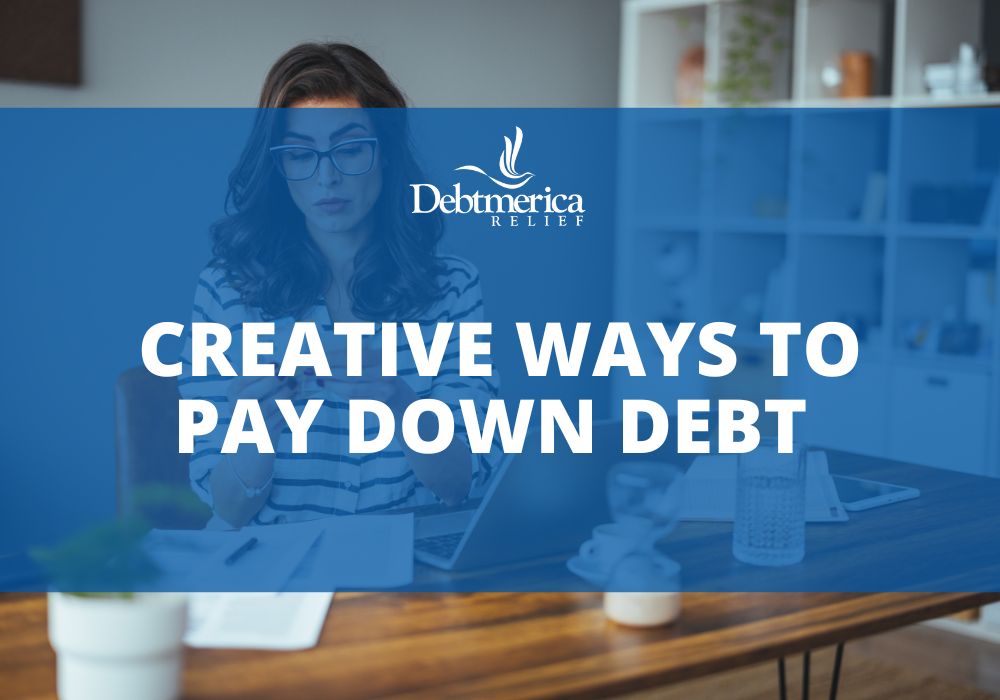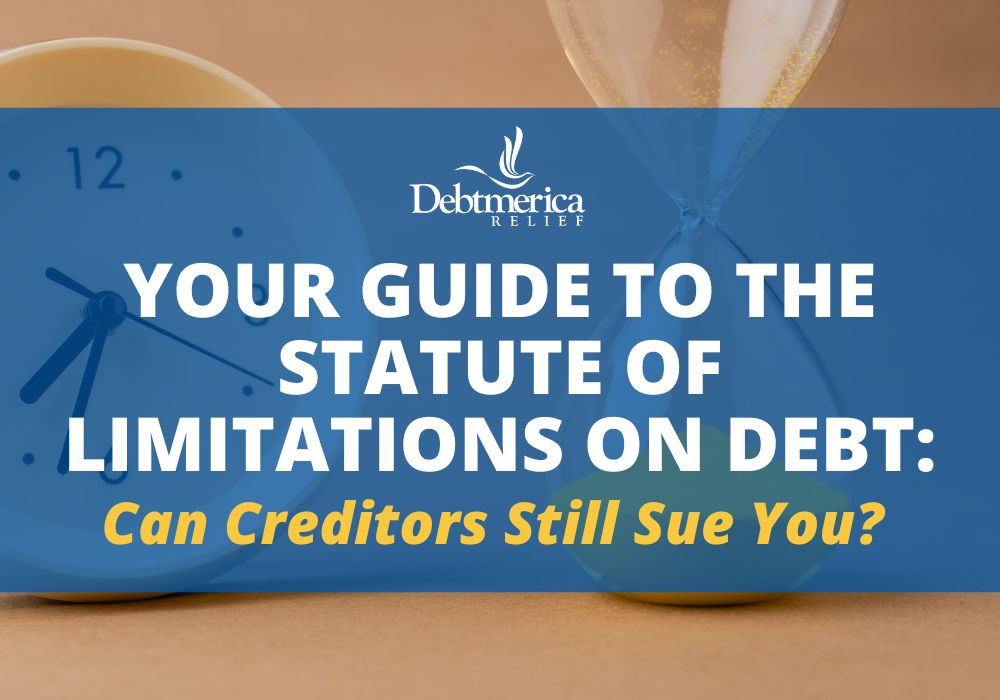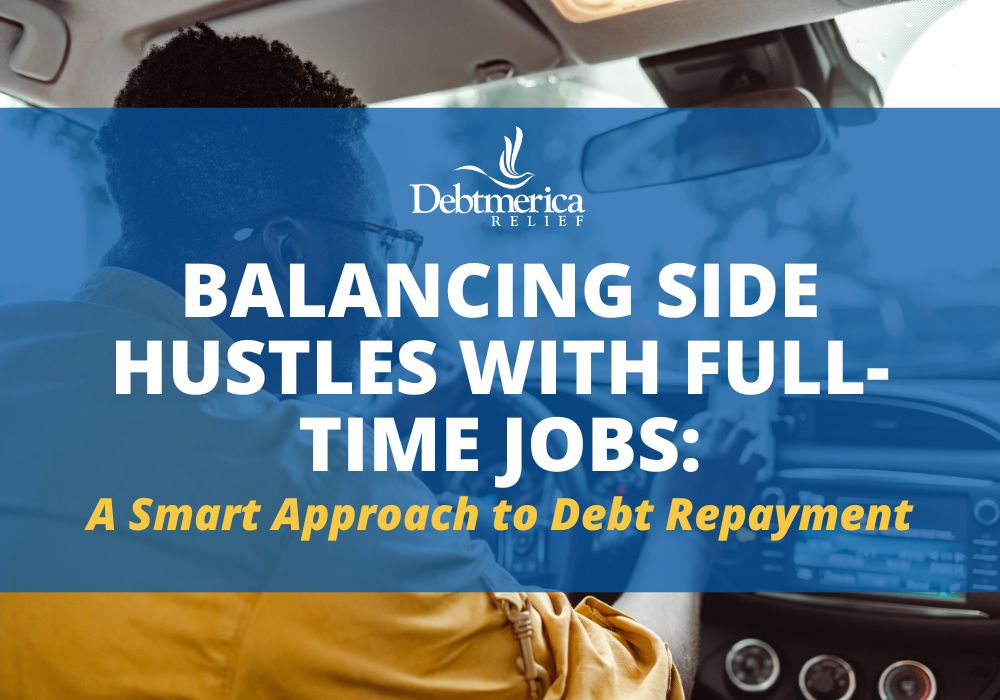Creative Ways to Pay Down Debt

Paying off debt doesn’t always require a strict budget or major lifestyle overhaul. Sometimes, the most progress comes from thinking outside the box. While traditional advice like “cut back on expenses” or “get a second job” can work, it often leaves people feeling burned out or boxed in. Fortunately, there are creative, realistic, and even enjoyable ways to approach debt repayment that can help you gain momentum and stay motivated over the long haul. Whether you’re dealing with credit card balances, student loans, or personal debt, the strategies below offer fresh ways to tackle what can feel like a never-ending cycle.
Reframe Your Mindset Around Debt
Before you try to change your financial habits, it’s important to shift the way you think about debt itself.
Treat Debt as a Solvable Problem
The first step toward taking a more creative approach is shifting how you think about debt. Many people carry shame around their balances, which can lead to avoidance and denial. But when you treat debt like any other challenge—one that can be broken into smaller, manageable steps—you empower yourself to take action.
Instead of focusing solely on how much you owe, consider framing your goal in terms of how much you can pay off each month. For instance, someone facing $10,000 in credit card debt might feel overwhelmed. But breaking it down into $500 monthly payments over 20 months feels far more achievable and tangible.
Celebrate Small Wins
Debt repayment is a marathon, not a sprint. One powerful tactic is to track your progress visually. Use a printable thermometer, a whiteboard, or a digital app to mark down every payment. Seeing that progress, even if it’s just $50 at a time, reinforces your efforts and keeps you engaged.
Turn Hobbies Into Income Streams
When you already feel stretched thin, tapping into your personal interests can be a fun and fulfilling way to generate extra money. One of the most creative ways to pay down debt is by turning your passions into profit. This doesn’t mean you have to start a full-blown business overnight, but there’s often potential to generate extra income from the things you already love to do.
Take, for example, someone who enjoys woodworking. Listing handmade pieces on Etsy or selling them at weekend markets can bring in several hundred dollars a month, which could be funneled directly toward debt. A skilled musician might teach lessons on the side, either in person or virtually, generating steady supplemental income without the rigidity of a second job. Even if your hobby isn’t a traditional moneymaker, there are often niche markets for everything from digital art to homemade pet treats. The key is finding a small audience and offering value—no need to go viral or be perfect.
Embrace the Side Hustle Mindset
If you’re looking for flexible ways to earn extra income without committing to a traditional part-time job, the gig economy is full of creative options. The gig economy has opened up countless ways to make extra money, often without requiring you to commit to long hours or fixed shifts. If you’re looking for something flexible, you might consider renting out part of your home through platforms like Airbnb or listing a parking spot if you live in a high-traffic area.
Others have found success with app-based micro tasks. Apps like Field Agent or TaskRabbit pay users to complete simple jobs like taking photos of store displays or assembling furniture. While the payouts may be small individually, they can add up quickly when directed toward a specific debt goal.
There’s also money to be made in flipping. For example, some people scour thrift stores or garage sales for undervalued items, clean them up, and resell them on eBay or Facebook Marketplace for a profit. This “treasure hunting” can be fun and surprisingly lucrative with a bit of research and practice.
Make It a Game
When motivation fades, turning debt repayment into a personal challenge can reignite your focus and make the process more rewarding. Gamifying your financial goals can make the process feel less like a burden and more like a personal competition. Try setting up a challenge for yourself, such as the 100 Envelope Challenge, where you label envelopes with dollar amounts from 1 to 100, and randomly select one each week to fill. By the end, you’ll have saved $5,050—money that could be directed entirely toward debt.
You can also invite a trusted friend or partner to join you in a “debt-free challenge.” Set individual goals and check in weekly to see who’s made the biggest payment. The shared accountability—and a bit of friendly competition—can keep you on track and even make the process enjoyable. Apps like Qoins or ChangEd round up your everyday purchases and apply the spare change toward your debts. These micro-payments can help you make extra principal payments without feeling the pinch in your daily budget.
Turn Unexpected Money Into Progress
Instead of spending unexpected money impulsively, you can use it to make big strides in your debt payoff plan. Many people treat bonuses, tax refunds, or birthday money as free-for-alls—but these windfalls represent some of the most powerful tools for accelerating debt payoff. One way to balance fun and responsibility is by splitting unexpected money in half: use 50% for something enjoyable and put the other 50% straight toward your debt.
Let’s say you receive a $1,200 tax refund. By applying $600 toward your highest-interest debt, you’re reducing the total amount of interest you’ll pay over time and bringing down your balance faster than if you stuck to the minimum payments. Even small “found” money—like a $20 rebate, a refund check, or a Visa gift card—can be applied to your next debt payment instead of being forgotten or spent on impulse buys. These little extras make a bigger difference than you might think.
Cut Costs Creatively
Reducing your expenses doesn’t always mean cutting out joy—it can be about spending smarter and finding creative alternatives. Try doing a “no-spend” challenge for a set period of time—perhaps one week or one month—where you only pay for essentials. During that period, redirect anything you would have spent on dining out, coffee, or impulse purchases toward debt. If you need something during your challenge, consider bartering or swapping. Communities on Facebook, Buy Nothing groups, or neighborhood apps like Nextdoor make it easy to trade services or items without spending cash. For example, someone might mow a neighbor’s lawn in exchange for a babysitting favor or swap clothing instead of buying new.
You can also look for opportunities to earn cashback or rewards on your existing purchases through apps like Rakuten or Ibotta, then apply that cashback to your debt instead of treating it as “free money.”
Create a Support System
Debt can be isolating—but it doesn’t have to be. In fact, involving others in your journey can offer the encouragement, accountability, and shared learning that makes the process easier. Join an online debt support group or create one with a few friends who have similar goals. Regular check-ins or group challenges can keep motivation high.
Being honest with close friends or family members about your debt payoff goals can also reduce pressure to spend money on social events or gifts. Instead of feeling like you have to decline every dinner invite, you might suggest low-cost alternatives or plan ahead so you can enjoy a night out without derailing your progress. If you’re in a relationship, consider setting a joint debt goal. Working together to pay off a shared credit card or student loan can strengthen communication and give both partners a reason to stay committed.
Conclusion
Getting out of debt is one of the most empowering financial moves you can make—but the path doesn’t have to be traditional or tedious. By tapping into your own creativity, using what you already have, and exploring new income ideas, you can build momentum and make progress that feels rewarding. Whether it’s a handmade product, a side hustle, a no-spend challenge, or a debt payoff game, the key is to stay engaged and consistent. Every payment, no matter how small, is a step closer to freedom. Debtmerica Relief has over 18 years of experience in providing relief to our clients whose financial burdens have become too much to handle.
If you need help with debt, contact us for a free consultation.



